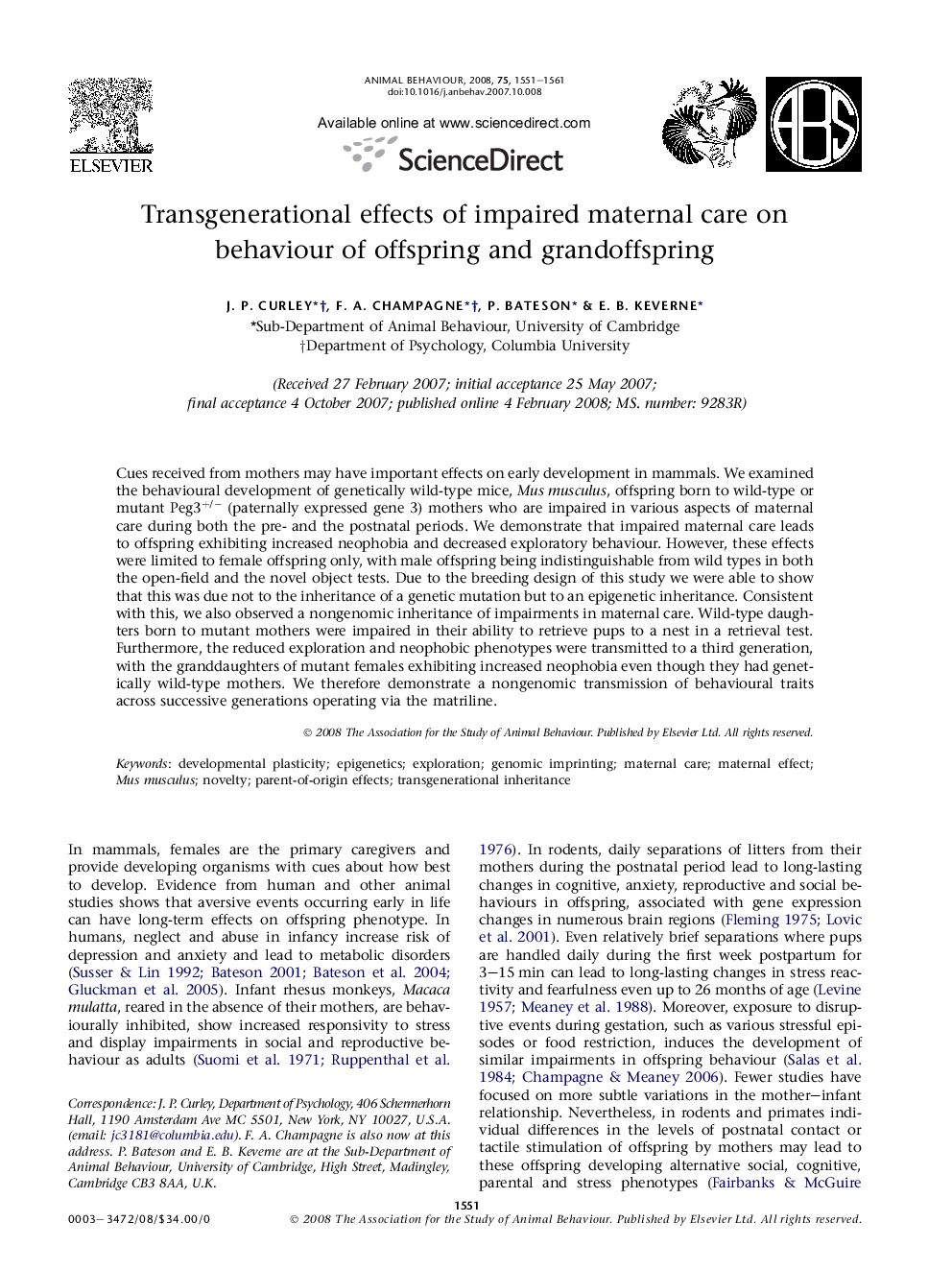| Article ID | Journal | Published Year | Pages | File Type |
|---|---|---|---|---|
| 2417771 | Animal Behaviour | 2008 | 11 Pages |
Cues received from mothers may have important effects on early development in mammals. We examined the behavioural development of genetically wild-type mice, Mus musculus, offspring born to wild-type or mutant Peg3+/− (paternally expressed gene 3) mothers who are impaired in various aspects of maternal care during both the pre- and the postnatal periods. We demonstrate that impaired maternal care leads to offspring exhibiting increased neophobia and decreased exploratory behaviour. However, these effects were limited to female offspring only, with male offspring being indistinguishable from wild types in both the open-field and the novel object tests. Due to the breeding design of this study we were able to show that this was due not to the inheritance of a genetic mutation but to an epigenetic inheritance. Consistent with this, we also observed a nongenomic inheritance of impairments in maternal care. Wild-type daughters born to mutant mothers were impaired in their ability to retrieve pups to a nest in a retrieval test. Furthermore, the reduced exploration and neophobic phenotypes were transmitted to a third generation, with the granddaughters of mutant females exhibiting increased neophobia even though they had genetically wild-type mothers. We therefore demonstrate a nongenomic transmission of behavioural traits across successive generations operating via the matriline.
